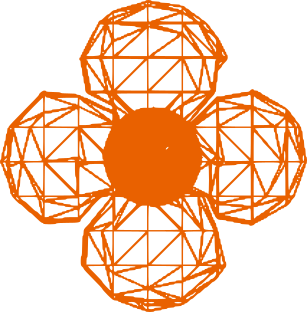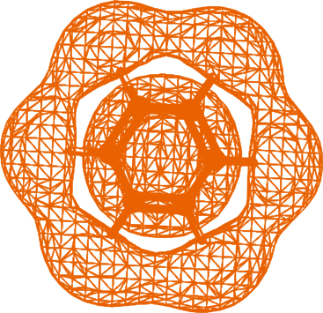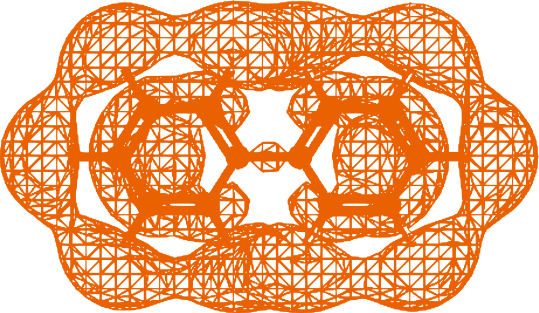Teaching with Q-Chem
Whether you're teaching an advanced graduate-level theoretical chemistry course, or you're leading a group of undergraduates into the exciting world of quantum chemistry for the very first time, Q-Chem and IQmol can help enhance any student's learning experience. Calculations and visualizations can be used to illustrate basic and advanced concepts in quantum mechanics, molecular structure, chemical bonding, and spectroscopy.
This page contains a selection of teaching resources which are freely available for instructors to use, including tips on using Q-Chem and the IQmol interface in the classroom, video tutorials, presentations, and guest lectures. We also have a selection of computational chemistry lab assignments, which can be given as homework or used as in-class exercises.

Teaching With Q-Chem Webinar
How are other professors using Q-Chem as a teaching resource? Find out by watching the webinar below, in which a panel of experts talk about how they've used Q-Chem in graduate and undergraduate courses. They discuss many topics, including IQmol, Q-Chem's free visualization software; Q-Chem's pre-written labs and other online resources; and their own unique insights and take-aways from their teaching experiences.

Getting Started
Want to start teaching with Q-Chem? The first step is to download IQmol, a free graphical interface that handles molecule building, calculation setup, visualization of results, and local and remote job submission. Windows, Mac, and Linux versions are available from www.iqmol.org. Every student can install a fully functional version of IQmol on their laptop for free.
Once IQmol is installed, instructors have two options of using Q-Chem in classes:
1. Use IQmol and Q-Chem server.
Short jobs can be submitted through IQmol to the Q-Chem server. This is the default configuration of IQmol. This is a free option. It is recommended for low-volume use of Q-Chem (e.g., simple illustrative calculations, jobs shorter than 5 min, class sizes 25 students or less).
2. Use existing Q-Chem license or purchase a new Q-Chem license.
For a larger volume of calculations and for more advanced projects, we recommend that you use a dedicated computational resource such as a local cluster or a university computing center. Of course, Q-Chem can also be installed on instructor's and students' laptops.
Using a dedicated local computational resource requires purchasing a Q-Chem license (check with your department or HPCC if you already have one). One installation of Q-Chem on an adequate machine is sufficient for serving the entire class. IQmol can be configured to submit jobs to any machine on which you have an account.

Instructor Resources
Getting Started With IQmol
Are you introducing your students to IQmol, or just beginning to use it yourself? We have plenty of learning resources available to help you get started. Check out these presentations, videos, and tutorials, which can be used in the classroom or for independent study at home:
- Slide Presentations:
- Video Tutorials:
- YouTube Video: IQmol for Beginners
- YouTube Video: IQmol Intricacies
- IQmol YouTube Channel
- Kristi Closser's IQmol Tutorials
- More tutorials (in English and Russian) are available on the The Atomic Scale Design For Newbies YouTube channel
Additional information can be found on the IQmol website and in the IQmol user guide.
Q-Chem GitHub Repository for Quantum Chemistry Teaching Resources
Our official repository for sharing Q-Chem teaching resources can be found here on GitHub. All tutorials are published under the CC BY-NC-SA 4.0 license and are freely available for academic and non-commercial use. We are excited to see this collection of resources continue to grow, and we welcome additional submissions from members of the Q-Chem community.
Computational Labs
Q-Chem provides a variety of computational labs that are free to use with IQmol, a list of which can be found here. Each lab handout contains an introductory section explaining the theoretical background, thorough instructions, and a set of practical application questions, allowing students to practice using quantum chemistry to gain useful insights into real systems.

Guest Lectures
Have you ever wanted to invite an expert to give a guest lecture in one of your classes? These video lectures from leading academic researchers in our field can be used to supplement your course materials and guide your group's discussions of theoretical chemistry methods and concepts.
Classical Quantum Chemistry for QIS (Part 1) given by Anna Krylov at the 2024 CIQC / AMAQIS Winter School.
Classical Quantum Chemistry for QIS (Part 2) given by Anna Krylov at the 2024 CIQC / AMAQIS Winter School.
-
Quantum Chemistry of Electronically-Excited and Open-Shell Species, presented by Prof. Anna Krylov
-
Lecture about orbital concepts in Quantum Chemistry given by Anna Krylov at the Greater Boston Area Theoretical Chemistry Seminar series. For background, see: https://aip.scitation.org/doi/full/10...
For more advanced theory students, check out our Q-Chem webinars. These lectures discuss ongoing developments in the Q-Chem package, and they cover a wide variety of topics, such as solvation, spectroscopy, RASCI methods, and energy decomposition analysis.

Additional Q-Chem Resources
-
Q-Chem Forum: Join other users and our developers on the Q-Chem forum to discuss any issues you are having with Q-Chem as well as to have your questions answered.
-
Q-Chem Manual: Everything you need to know about Q-Chem. Includes theoretical background and examples of sample jobs
-
Q-Chem YouTube Channel: Collection of webinars on basic and advanced topics (can be used as guest lectures in the class)